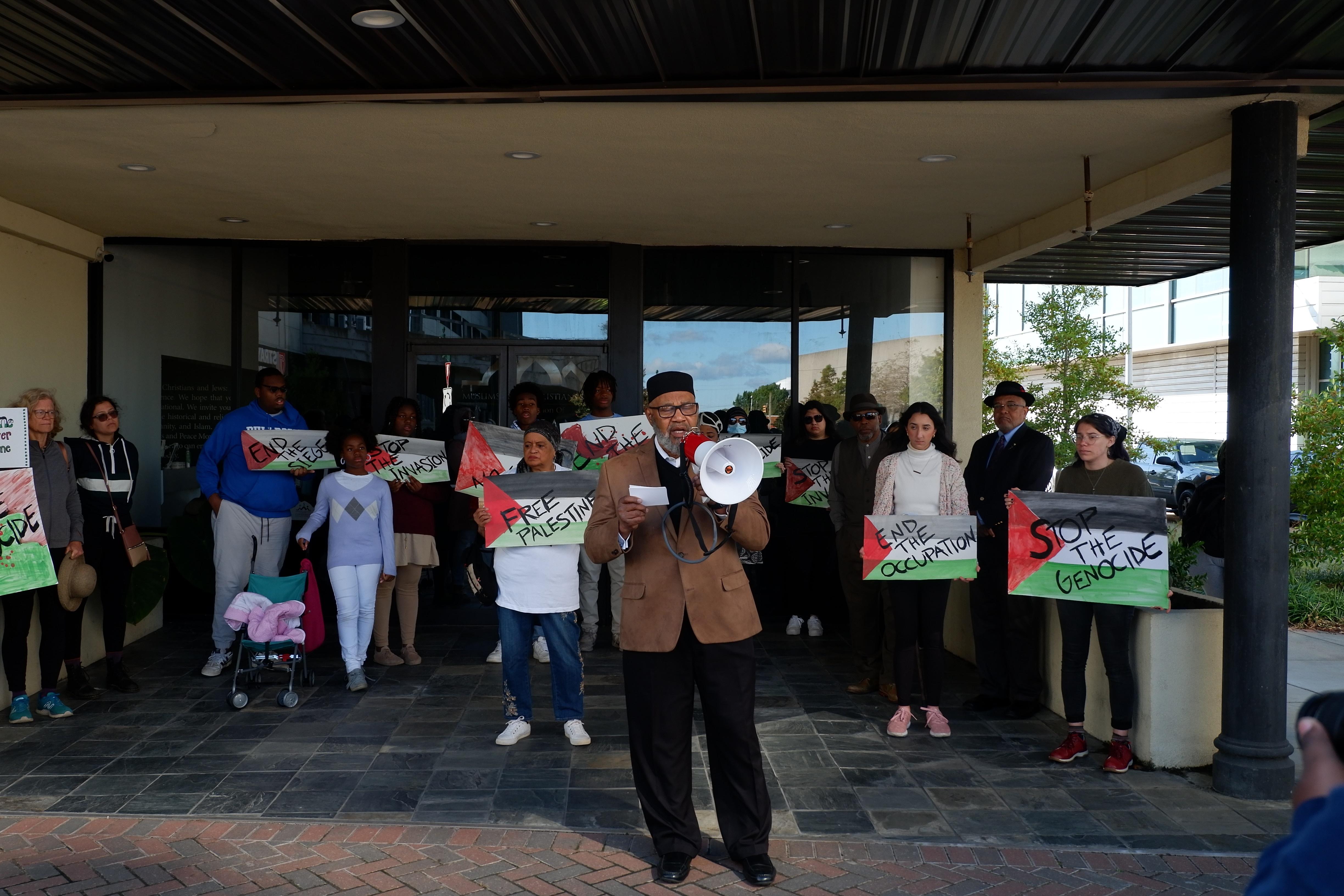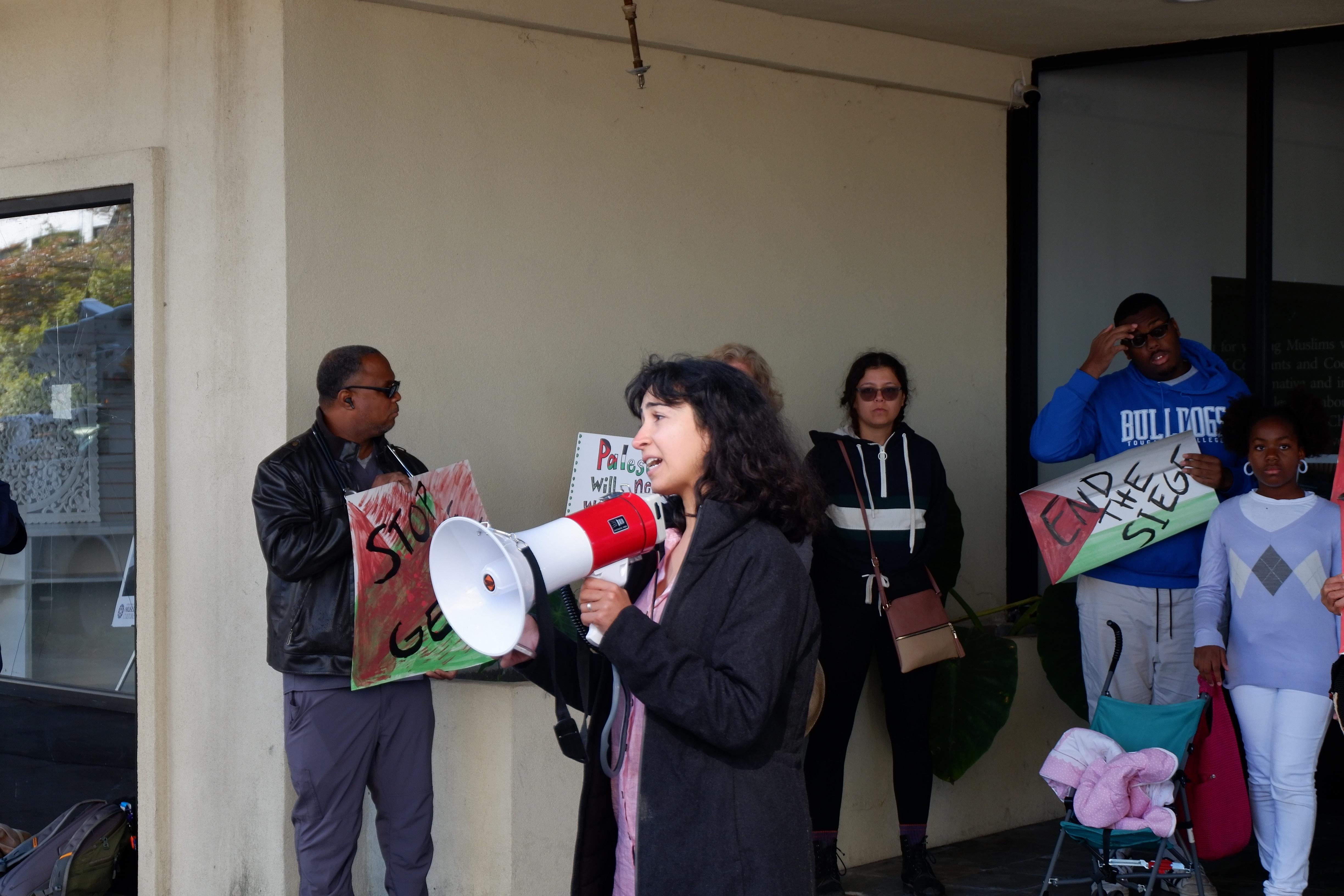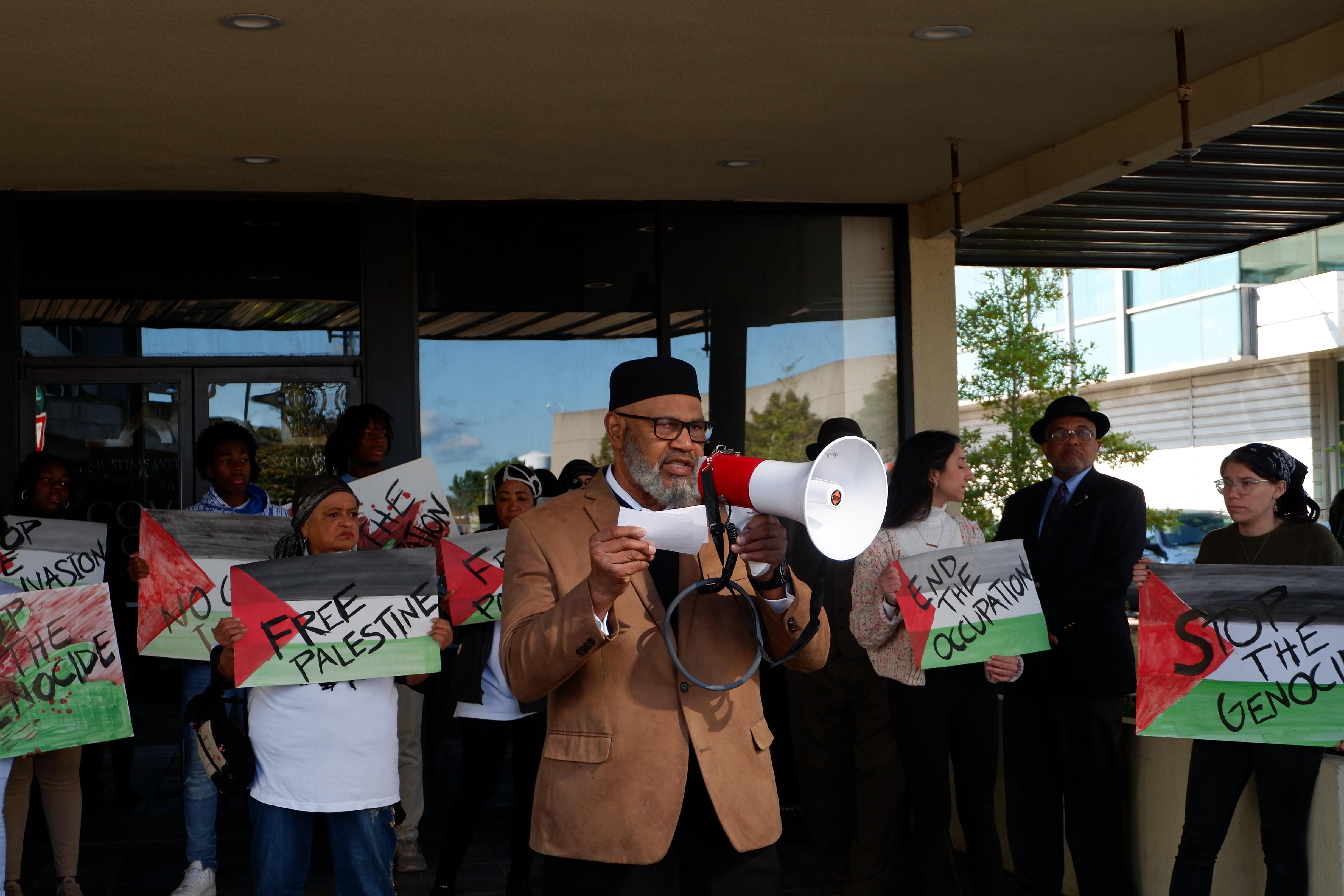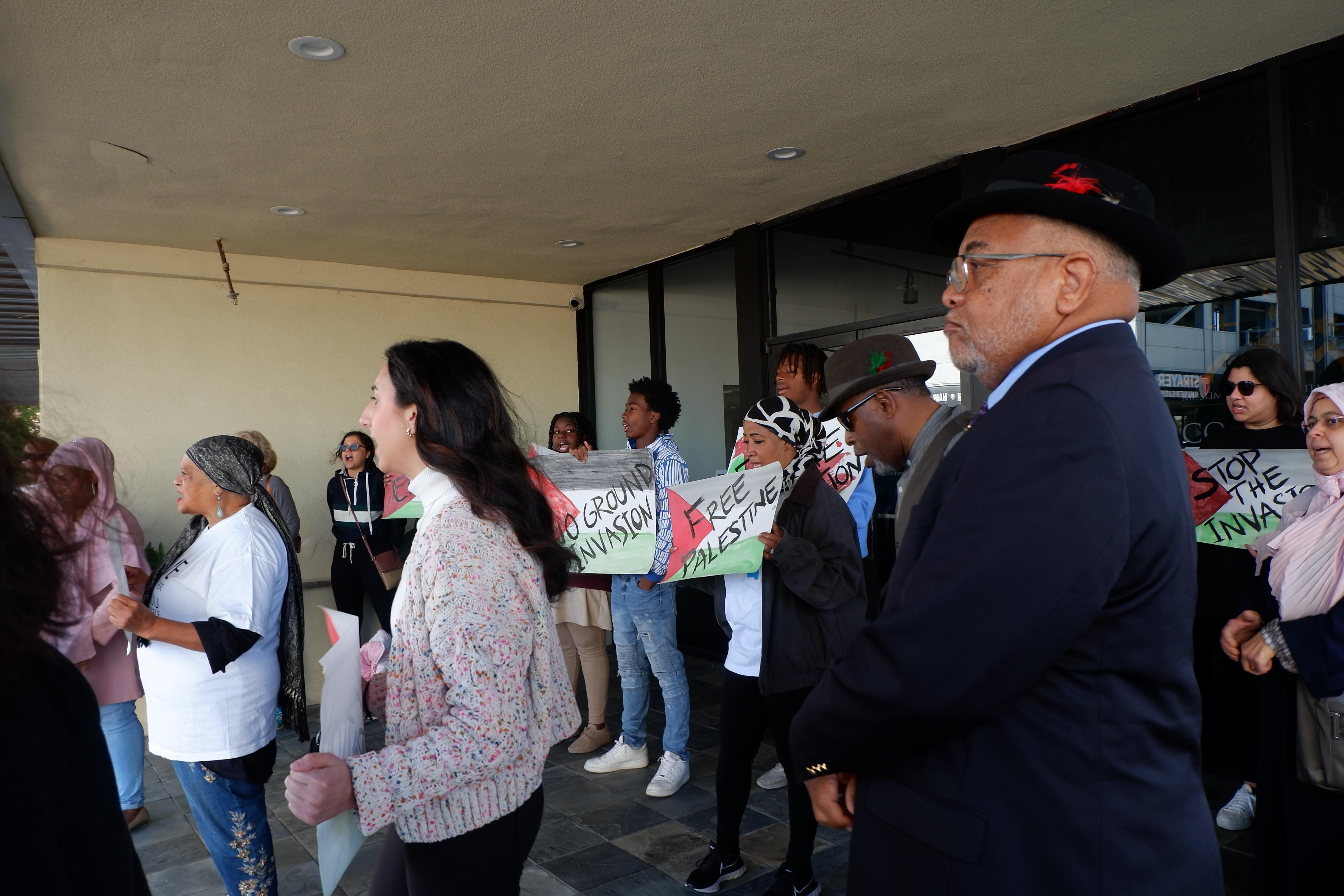In front of the International Museum of Muslim Culture, a crowd of about 40 people, including Jackson resident Delana Tavakol, chanted in support of Palestine and the safety of Palestinian civilians.
The group comprised largely of religious leaders, students and members of Jackson's Muslim community. They say they showed up to lend their voice to a growing movement demanding the human rights of Palestinian civilians be respected as the conflict develops.
Several speakers clarified their show of support was not for Hamas, but rather Palestinian civilians.
“The past week has been horrific to watch since the attack by Hamas. Israeli collective punishment of Palestinians not just in this past week, but in the past 75 years just for being Palestinian on their own land, has been horrific. It's a genocide,” said Tavakol, a Jackson resident who helped organize the demonstration. “Israel has been committing apartheid against indigenous Palestinians on their own land for 75 years. We're here to stop that.”
Officials in Israel have said at least 1,400 were killed following a surprise offensive launched into the eastern Mediterranean country by Islamist terror group Hamas on Oct. 7.
The Palestinian Ministry for Health says at least 3,000 residents of the Gaza Strip – a thin, 25 mile-long strip of land cut off from the rest of Palestine by Israel – have been killed in response, with estimates of injured totaling more than 12,000 as of the time of publication.
Chants of “Free, free Palestine,” and “No justice, no peace,” echoed through downtown for more than an hour under a cold wind. Many in the crowd held signs reading “not in my name” and “no to ground invasion,” emblazoned over the Palestinian flag.






.jpg)

